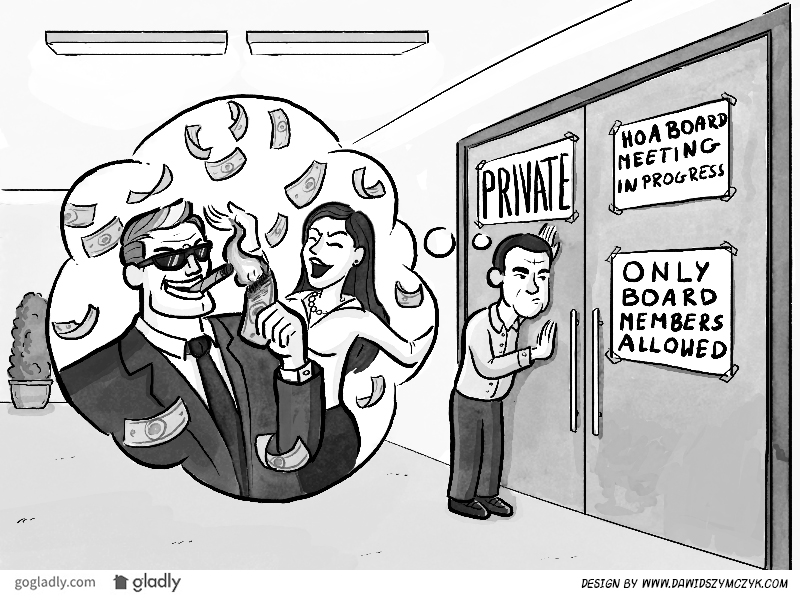HOA transparency is a hot topic and a buzzword that we hear a lot. But what does it mean to be transparent? We all want homeowners to understand the goals and objectives of the association but to be completely transparent means we could be open to scrutiny and criticism.
The fact is — homeowners DO care about their community, but if they can’t see what’s going on, they think the board or manager is hiding something, and if they are hiding something it must be bad!
- Adopt a policy. Decide with your attorney what can be made public and what needs to stay private. Let homeowners know about the policy so they understand what can’t be made public and why.
- Make documents readily available. Governing documents, amendments, and the budget should be up to date and on your website where owners can find them easily whenever they want. When an owner requests financials they want them now, not 2 days from now. Imagine how a homeowner feels when he can get a current financial statement in just a couple of hours instead of a few days. With a good management program you can run the reports and send them in just a few clicks.
- Simplify Communication. Make it easy for homeowners to contact you, and make sure they get a prompt response. One of the most frustrating thing for a homeowner is not knowing how to contact the association.
- Open up your meeting. This is a tough one for some community leaders to swallow. An open meeting with rules on participation can solve a lot of concerns and helps homeowner to see the difficult job that board member have. This may take some education to help visitors understand the difference between a meeting and an open forum.
- Be helpful! Poor customer service is often interpreted as a cover up. On the other hand good customer service can prevent homeowners from jumping to rash conclusions. If they see you as an ally instead of opposition they are more likely to trust you and promote the community and your services.
Real HOA transparency will ultimately build trust between homeowners and community leaders. That trust will result in stronger communities and fewer headaches for managers and board members.
Latest posts by Burke Nielsen (see all)
- Liar, Liar, Pants on Fire! Handling Misinformation in Your HOA - March 13, 2019
- Setting the Ground Rules for Neighbor Disputes - June 27, 2018
- HOA Board Responsibilities – It’s Not as Difficult as You’re Making It. - April 23, 2018



 Help
Help
Unfortunately the word transparent has been reduced to a code word for lying by the current administration. I would not use that word now as it’s meaning has been altered. Honesty is always a good policy.
Hi Todd. Thanks for the comment.
The word transparency certainly has been over-used lately. When that happens the words lose their meaning and can take on completely new ones. I can certainly see transparency being bastardized into meaning something other than the dictionary definition, but I hope it’s not being generally used to the extreme that you mention!
You’re probably right about using honesty instead. It’s a more direct word and is less likely to be abused. Thanks!
Good information for managers and board members. It’s always helpful to open lines of communication (and more importantly, reasonable response times to owner inquiries!) and let your owners know that some issues the board may discuss are talked about and debated in private because that discretion is not only best for the association as a whole, but it is permitted by law in order to protect the association during the resolution of items such as employment issues or litigation. It’s human nature to think that anything done behind closed doors has some type of “cloak and daggar” mystique. True transparency in every other aspect of association business will build the trust necessary to fend off the worst of the normal human response to private meetings of the board and manager.
Hi Nicole. I agree. Thank you for your comment!
[…] Don’t do that. It will cause more problems in the long run. […]
[…] best HOA’s take transparency and communication to the max. They open their meetings, seek homeowner input, and clearly explain […]